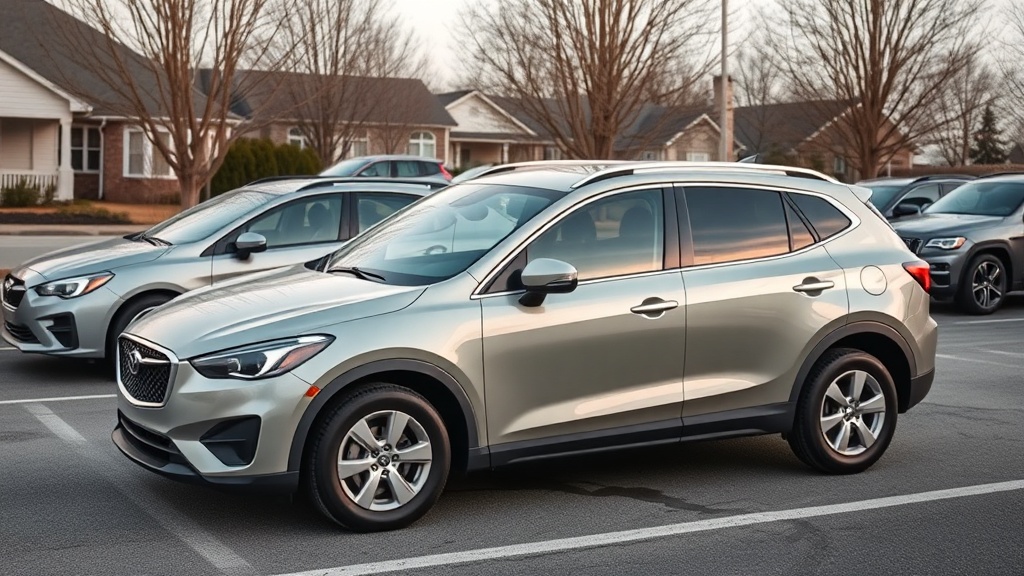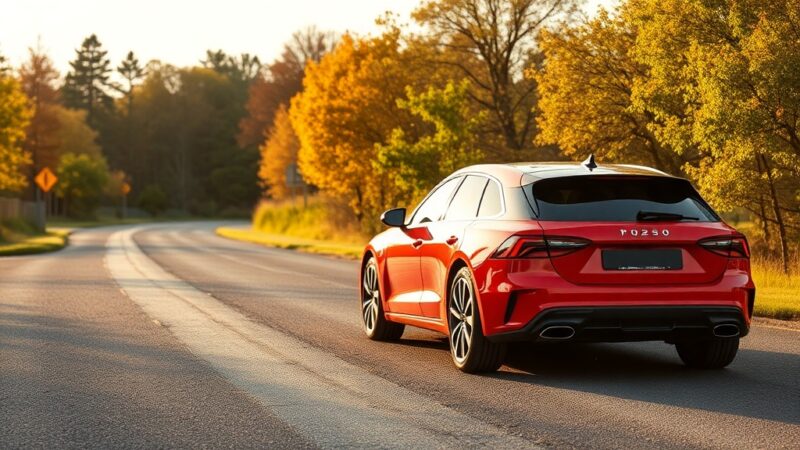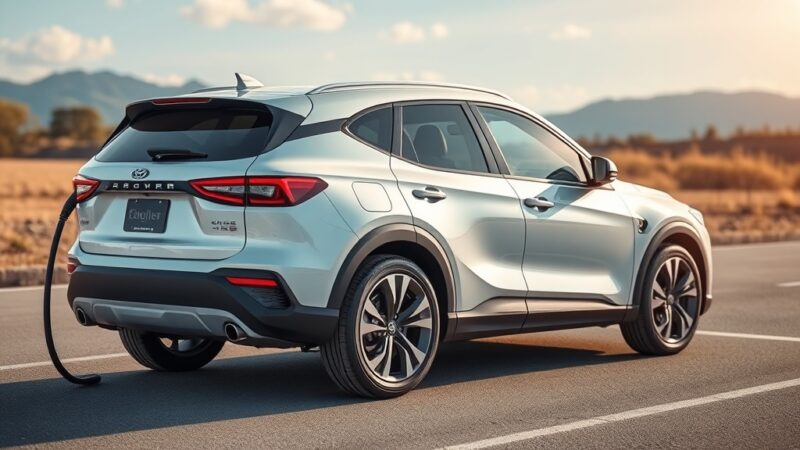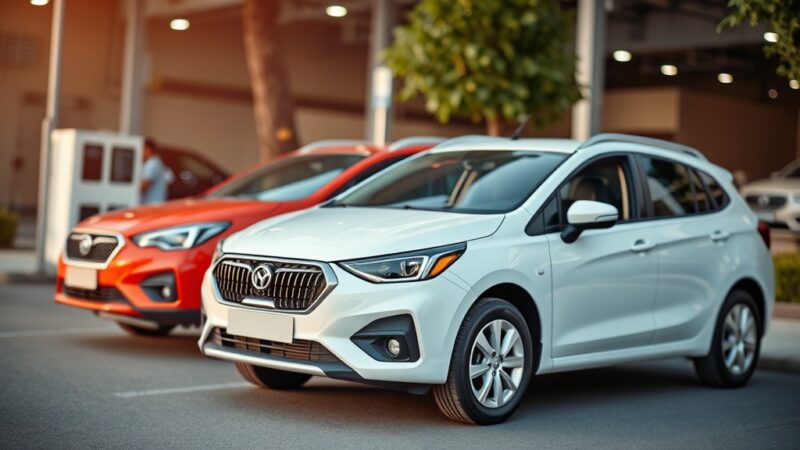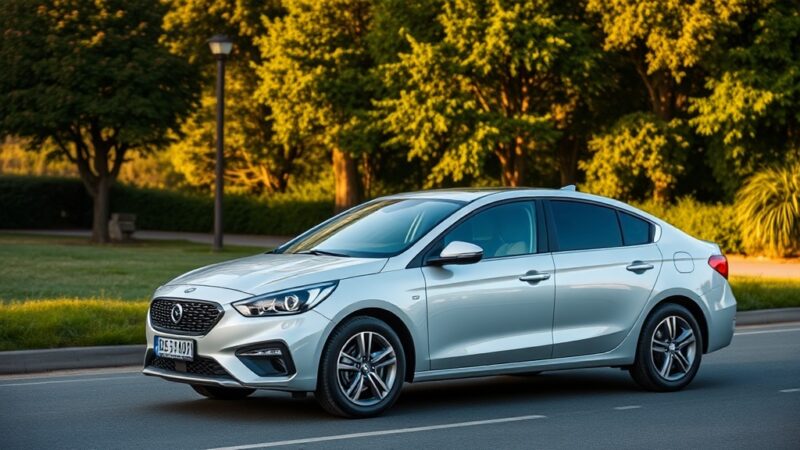Most Fuel Efficient Vehicle Options for Multi-Car Households
In a world where fuel prices continue to rise and environmental consciousness grows, finding the most fuel-efficient vehicle options for households with multiple cars is essential. If you’re part of a multi-car household, balancing efficiency with practicality is crucial for both cost savings and reducing your carbon footprint. Whether you commute to work, ferry kids to school, or run errands, here are some vehicle options that stand out for their fuel efficiency.
Hybrid Vehicles
Hybrid cars combine a gasoline engine with an electric motor, offering exceptional fuel efficiency. Here are some top choices:
- Toyota Prius: Known for its outstanding mileage, the Prius averages around 56 mpg combined. Its spacious interior makes it perfect for families.
- Honda Insight: With a sleek design and a fuel efficiency of approximately 52 mpg combined, the Insight provides a comfortable ride without sacrificing style.
- Ford Escape Hybrid: This compact SUV offers both passenger space and utility, achieving about 41 mpg combined.
Plug-in Hybrids
Plug-in hybrids offer the flexibility of driving on electric power alone for short trips, while still having a gasoline engine for longer journeys. Consider these models:
- Toyota RAV4 Prime: Offering a combined efficiency of 94 MPGe (miles per gallon equivalent) when using electric power, this SUV has a versatile range that meets various driving needs.
- Kia Niro Plug-In Hybrid: With an MPGe of around 105, the Niro caters to urban families looking for an eco-friendly vehicle.
Electric Vehicles (EVs)
For those ready to go fully electric, EVs provide zero tailpipe emissions. They’re also incredibly efficient, often saving even more in fuel costs over time. Here are a few options:
- Tesla Model 3: Renowned for its performance and range, the Model 3 offers about 4.1 miles per kWh, making it an ideal option for families.
- Nissan Leaf: As one of the more affordable EVs, the Leaf achieves around 111 MPGe, making it a practical choice for those entering the EV market.
Compact Cars
If larger vehicles are not necessary, compact cars deliver great fuel efficiency with less weight. These are some compact options worth considering:
- Honda Civic: Known for its reliability, the Civic averages roughly 36 mpg combined, balancing performance and efficiency nicely.
- Hyundai Elantra: With a fuel economy of about 37 mpg combined, the Elantra offers practicality for households on a budget.
Considerations for Multi-Car Households
Choosing fuel-efficient vehicles for a multi-car household also involves considering your family’s specific needs:
- Driving Habits: Analyze each member’s driving habits. If someone drives long distances, a hybrid or efficient SUV might be a better fit, while city dwellers may prefer smaller, more fuel-efficient options.
- Space Requirements: Consider the number of seats and cargo space needed. An SUV or a minivan may be a necessity for larger families.
- Budget: Factor in the upfront costs versus long-term fuel savings. Often, hybrids and EVs have a higher initial cost but can save significant money at the pump.
Final Thoughts
Opting for the most fuel-efficient vehicle options in a multi-car household can save you money, reduce environmental impact, and help you stay ahead of rising fuel costs. By knowing your family’s specific needs and evaluating various vehicle options, you can choose the right mix of cars that provide efficiency, space, and comfort.
| Vehicle Type | Model | Fuel Efficiency (mpg or MPGe) |
|---|---|---|
| Hybrid | Toyota Prius | 56 mpg |
| Hybrid | Honda Insight | 52 mpg |
| Plug-in Hybrid | Toyota RAV4 Prime | 94 MPGe |
| Electric | Tesla Model 3 | 4.1 miles/kWh |
| Compact | Honda Civic | 36 mpg |
Exploring various fuel-efficient vehicles can empower you to make informed decisions that suit your family’s lifestyle and needs.
Strategies for Reducing Fuel Costs in Families with Multiple Vehicles
Managing fuel costs can be a challenge for families with multiple vehicles. However, with the right strategies, you can reduce expenses significantly. This not only helps your wallet but also benefits the environment. Here are several effective methods to help you keep fuel costs low in your multi-car household.
1. Carpooling and Ridesharing
Encouraging family members to carpool can lead to substantial savings. Organize schedules to ensure that similar trips are combined. This reduces the number of times each vehicle has to hit the road, ultimately saving fuel. Consider rideshare apps that can connect your family with others who are traveling to similar destinations. This option allows multiple people to share costs and reduces the number of cars on the road.
2. Optimize Routes
Using navigation apps to find the most efficient routes can save you both time and fuel. These apps often provide real-time traffic data, helping you avoid congested areas which waste gas. Here are some tips to consider:
- Plan trips during off-peak hours.
- Use GPS navigation to avoid traffic jams.
- Combine errands into one trip to minimize drive time.
3. Vehicle Maintenance
Regular maintenance can extend the life of your vehicles and enhance fuel efficiency. Here are some maintenance practices to keep your cars running smoothly:
- Change the oil regularly according to manufacturer recommendations.
- Keep tires properly inflated; under-inflated tires increase fuel consumption.
- Replace air filters to ensure optimal airflow.
By ensuring each car is well maintained, you can prevent wasted fuel due to mechanical issues.
4. Choosing Fuel-Efficient Vehicles
When adding to your vehicle fleet, consider investing in fuel-efficient cars. Compact cars, hybrids, and electric vehicles often provide better mileage compared to larger trucks or SUVs. Reviewing vehicle options based on fuel economy may lead to significant savings in the long run.
The following table shows some of the most fuel-efficient vehicle options for families:
| Vehicle Model | Fuel Efficiency (MPG) | Type |
|---|---|---|
| Toyota Prius | 56 | Hybrid |
| Honda Insight | 55 | Hybrid |
| Hyundai Ioniq | 58 | Hybrid |
| Tesla Model 3 | 130 | Electric |
5. Fuel Purchase Strategies
How you buy fuel can also impact your overall costs. Consider the following strategies:
- Join loyalty programs from gas stations to earn discounts.
- Use apps that track local gas prices to find the best deals.
- Refuel during the coolest times of the day, as fuel is denser and prices can be lower.
6. Change Driving Habits
Adopting more economical driving practices can lead to reduced fuel consumption. Encourage all drivers in your household to:
- Avoid rapid acceleration and hard braking.
- Drive at a steady speed and use cruise control on highways.
- Limit idling time when parked, as this wastes fuel.
By shifting how you drive, you can lower your fuel use without making any drastic changes.
7. Consider Alternative Modes of Transport
Alternative transportation methods into your family routine can further reduce fuel costs. Here are some options to explore:
- Utilize public transport for daily commutes.
- Encourage biking or walking for short distances.
- Consider car-sharing or bike-sharing services for occasional needs.
By adopting these strategies, families with multiple vehicles can effectively manage and reduce fuel costs. Remember, every small change can compound over time, resulting in significant savings. Your family will not only benefit financially but will also contribute to a more sustainable future.
Conclusion
Choosing the right vehicles for a multi-car household can significantly impact your fuel expenses. By selecting options that prioritize fuel efficiency, you not only contribute to saving money but also play a part in protecting the environment. Vehicles like hybrids and compact cars are often ideal choices for families. They combine practicality with high miles per gallon (MPG), making them perfect for short trips and daily commutes.
Implementing strategies to reduce fuel costs is equally important. Regular maintenance, such as timely oil changes and tire rotations, ensures your vehicles run efficiently. Encourage carpooling among family members to decrease overall fuel consumption. Additionally, planning trips can help minimize unnecessary driving, keeping fuel costs lower.
Considering the fluctuating prices at the gas pump, it is wise to educate and involve the entire family in conversations about fuel-efficient driving habits. Simple changes, such as reducing excess weight in vehicles or avoiding aggressive driving, can yield surprising benefits in fuel economy.
Ultimately, the goal is not only to select the most fuel-efficient vehicle options for your household but also to adopt habits that enhance those savings. By making informed choices and leading a fuel-conscious lifestyle, you’ll position your multi-car family to thrive financially while also contributing to a sustainable future. Investing in fuel-efficient vehicles and adopting cost-saving strategies means less financial strain in the long run and a more environmentally friendly approach to transportation. Embrace these practices today to reap the rewards for years to come.

